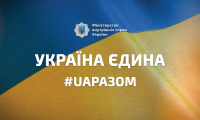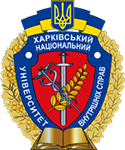WEBINAR ‘UNION OF SKILLS: STRENGTHENING EUROPE’S FUTURE THROUGH BASIC SKILLS AND STEM EDUCATION’
As part of an important international initiative, the webinar ‘Skills Union: Strengthening Europe's Future through Basic Skills and STEM Education’ was attended by:
Olena Tsymbalisova, the Deputy Director of the College for Educational and Scientific Activities,
from the Air Transport Department – head of the Department, Candidate of Chemical Sciences, associate professor Tetiana Kozlovska;
form the Department of Management, Social Sciences, Humanities and Fundamental Disciplines – head of the Department Maryna Kiriukhina, senior teacher Svitlana Hrybanova, teachers Maryna Puzyr and Vira Siora;
from the International Relations and Interuniversity Work Group - specialist Svitlana Stelmakh and translator Yuliia Onyshchenko.
The participants discussed the key challenges of the skills shortage that is affecting industry across Europe and the role of digital education in creating a sustainable labour force. The webinar highlighted how initiatives in adult learning, vocational training and continuing professional development can help overcome these challenges within the framework of the Skills Union programme.
Particular attention was paid to the Strategic Plan for STEM Education, which aims to address critical challenges in this area within the European Union, as well as the Basic Skills Action Plan. The former focuses on improving basic skills in areas such as reading, maths, science, digital literacy and citizenship, while promoting excellence in these areas.
Link to the Miro board: EDEH2 Webinar The Union of Skills - Miro
Information about PIAAC: PIAAC
STEM education is an integrated approach to learning that encompasses four main disciplines: Science, Technology, Engineering and Mathematics. It includes: practical classes and projects, interdisciplinary learning, development of critical thinking and analytical skills. It helps develop the skills needed to solve real-world problems and prepares students for successful careers in the high-tech world.
The STEM approach stimulates innovation and creativity in scientific and technical research. Through STEM education, students gain a deeper understanding of how different disciplines are interconnected and how they can be used to make progress in various fields.













